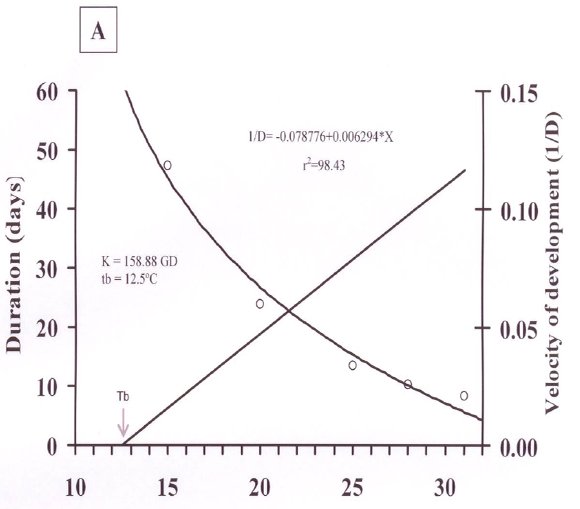This research aimed at studing Telenomus remus Nixon biology reared on Spodoptera frugiperda (J.E. Smith) eggs at different temperatures. Based on the development of the cycle (egg-adult), the thermal requirements and the number of parasitoid generations at constant temperatures were determined. Initially, 24-hour-old S. frugiperda eggs were submitted to parasitism by T. remus during 5 h, being then transferred to acclimatized chambers regulated at 15, 20, 25, 28, 31, and 35°C. The cycle (egg to adult) was influenced by temperature varying from 8.3±0.01 to 47.2±0.01 for females and 8.1±0.01 to 46.8±0.01 days for males at 31 and 15°C, respectively. The emergency (%) was also influenced by temperature. A reduction in emergency was observed at 15°C and no emergency at 35°C. T. remus sex ratio was not influenced by temperature. Sexual rate was not changed by temperature. Regarding to thermal requirements, thermal constant (K) and inferior thermal threshold (Tb) were higher for T. remus females (158.88 degree-days and 12.5°C) when compared to males (154.12 degree-days and 12.6°C). The estimated number of T. remus generation per year for males and females at laboratory conditions was 5.6 and 5.6, 16.9 and 17.3, 28.3 and 29.0, 35.1 and 36.0, 39.6 and 40.7 at 15, 20, 25, 28, and 31oC, respectively.
integrated pest management; biological control; eggs parasitoid; degree-days



